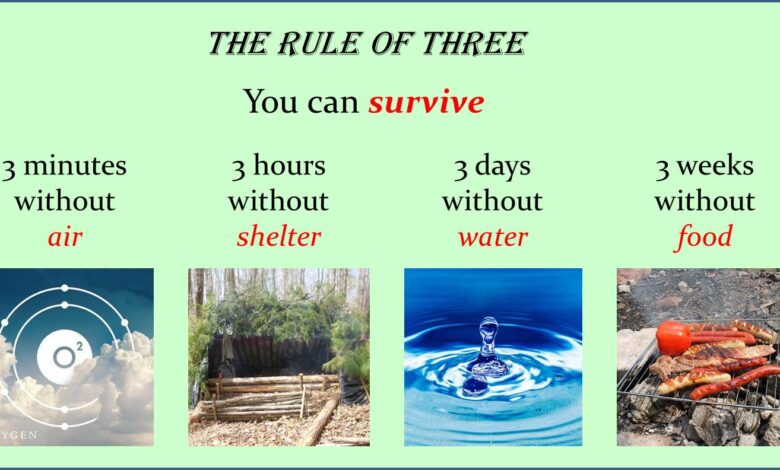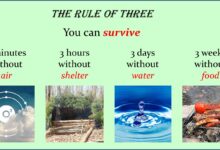The Three Week Rule: Why Waiting Can Change Everything

Introduction: What Exactly Is the Three Week Rule?
Three Week Rule We live in a world that celebrates speed. Faster shipping, instant replies, same-day delivery, and even binge-worthy shows that drop all at once. With this kind of environment, patience can feel like an old-fashioned relic, something our grandparents had to practice because they had no other choice. Enter the Three Week Rule—a simple but powerful idea that suggests waiting for three weeks before making a big decision, purchase, or lifestyle change. It’s not about dragging your feet or missing opportunities, but about giving yourself enough breathing room to make choices you won’t regret later.
At its core, the Three Week Rule is based on one simple observation: urgency clouds judgment. When you’re caught up in the excitement of a shiny new car, a trendy gadget, or even a new job opportunity, your brain doesn’t always weigh the pros and cons objectively. By waiting three weeks, you strip away that initial adrenaline rush and see the situation for what it really is. It’s like the difference between falling in love at first sight versus actually dating someone long enough to see their quirks.
The beauty of this rule is that it doesn’t demand radical discipline or months of waiting. Three weeks is short enough to be realistic, yet long enough to let the emotional fog clear. It’s a middle ground—a compromise between impulse and procrastination. And whether we’re talking about money, relationships, or personal goals, this waiting period often reveals truths we would’ve otherwise overlooked.
Why Three Weeks? The Psychology Behind the Rule

The number three has always had a special place in human thinking. Think about it: three meals a day, three wishes in fairy tales, three strikes in baseball. There’s something about three that feels balanced. In psychology, Three Week Rule hits the sweet spot of being long enough to build perspective but not so long that you lose motivation or forget what you were considering in the first place.
One of the biggest reasons three weeks works is because it pushes decisions past the point of initial excitement. Studies show that our brains release dopamine when we anticipate something new, whether it’s a gadget, a vacation, or even the prospect of quitting your job. This dopamine spike makes us feel like we need it right away. But after a few weeks, dopamine levels stabilize, and you’re able to judge the situation without chemical bias. That’s science quietly telling us to cool off before handing over the credit card.
Another angle is habit formation. Three weeks, or 21 days, is often cited as the time it takes to form or break a habit. While the exact number varies by person, this timeline allows you to see whether your desire for something was just a passing mood or a genuine interest. If after Three Week Rule you still want that thing—whether it’s a new hobby, a move to a new city, or even a relationship shift—it’s much more likely to be a lasting choice instead of a fleeting whim.
Applying the Rule to Money Decisions
Let’s face it: most regrets come with a price tag. Think about that expensive exercise bike collecting dust, or the flashy phone that lost its charm two weeks after the unboxing. This is where the Three Week Rule really shines. By simply waiting Three Week Rule before spending, you filter out 90% of those “what was I thinking?” purchases.
For big-ticket items, the Three Week Rule acts like a built-in cooling system. You see a car that makes your heart race—wait three weeks. You stumble upon a designer watch that feels like “the one”—wait three weeks. If after that time you still feel strongly, you can move forward with confidence, knowing the choice wasn’t driven purely by impulse. Often, though, you’ll find the craving fades, and your bank account thanks you.
Even for smaller day-to-day spending, this rule can be surprisingly powerful. Think about online shopping carts. Instead of clicking “buy now,” leave it there. Give it three weeks. Chances are, half the items will seem unnecessary once the initial thrill is gone. It’s like your own built-in budget advisor—one that doesn’t charge fees.
The Rule and Relationships
Money is one thing, but relationships are a whole different beast. And here too, the Three Week Rule can save a lot of heartache. Let’s say you meet someone new, and the chemistry is off the charts. It’s tempting to make big promises, move too fast, or even declare this person “the one.” But the truth is, initial chemistry can blind us to red flags. Waiting three weeks allows reality to seep in. You see how they act in different situations, how they treat others, and whether that initial spark has substance behind it.
On the flip side, the rule can also help when you’re considering walking away from a relationship. Maybe you’re frustrated after a fight or feel the grass is greener elsewhere. Instead of making a hasty exit, give it three weeks. In that time, emotions settle, and you get a clearer picture of whether you’re reacting to a temporary issue or a deeper incompatibility.
Friendships and professional relationships benefit, too. Think about those moments when you’re tempted to send a harsh email or cut ties with someone after one bad experience. Three weeks creates a natural pause button, allowing you to react thoughtfully instead of rashly. It’s not about ignoring problems, but about ensuring your response is measured, not impulsive.
Career and Life Choices
Career decisions can be some of the most stressful and impactful ones we make. The temptation to jump ship when a job gets tough is very real, as is the excitement of a shiny new offer. But just like with money and relationships, waiting three weeks can prevent regret. That new opportunity might look golden on day one, but by day twenty-one, you might notice cracks—like a longer commute, weaker benefits, or a toxic culture hiding behind the initial sales pitch.
Similarly, when it comes to quitting a job without a backup plan, the Three Week Rule is invaluable. It gives you time to think about whether you’re running away from a problem that could be solved, or running toward something better. Often, frustration peaks and then eases within that timeframe, helping you see whether your urge to quit is a temporary emotion or a genuine calling for change.
Life choices beyond career—like moving to a new city, starting a new fitness program, or even adopting a pet—also benefit from this buffer zone. Three weeks provides enough time to research, reflect, and imagine the long-term consequences. It’s a way of making sure your decisions align with your values, not just your moods.
How to Actually Practice the Three Week Rule
Of course, all of this sounds great in theory, but how do you actually put it into practice? The trick is to make the rule automatic. Whenever you feel the urge to make a significant decision, hit pause and mark the calendar. That three-week mark becomes your decision day. During that time, write down your thoughts. Why do you want this thing? What are the pros and cons? Has your excitement faded, or has it stayed consistent?
Another tip is to use reminders. If it’s a purchase, leave the item in your online cart with a note saying “check back in three weeks.” If it’s a job decision, schedule a reminder in your phone to revisit the choice on a set date. Treat it like an experiment—you’re not denying yourself forever, just creating a buffer.
The hardest part, of course, is resisting the temptation to break your own rule. But once you see how effective it is—how much money you save, how much regret you avoid—you’ll find the discipline easier to stick with. Over time, the Three Week Rule becomes less of a rule and more of a habit, something you naturally default to without even thinking about it.
Conclusion: Patience Is a Superpower
In an age where everything screams “now,” the Three Week Rule feels almost rebellious. It’s a reminder that not every urge deserves immediate action, and that sometimes the smartest move is to wait. Three weeks isn’t long—it’s less than a month—but the clarity it brings can last a lifetime.
Whether it’s saving your wallet from impulse buys, your heart from rash relationship choices, or your career from misguided leaps, this rule works because it’s simple, practical, and rooted in human psychology. It doesn’t ask you to deny yourself forever, just to give your future self a chance to weigh in.
So the next time you feel pulled toward a big decision, remember the Three Week Rule. Pause, breathe, wait. Three weeks later, you’ll either move forward with confidence or realize you just dodged a mistake. Either way, you win.

